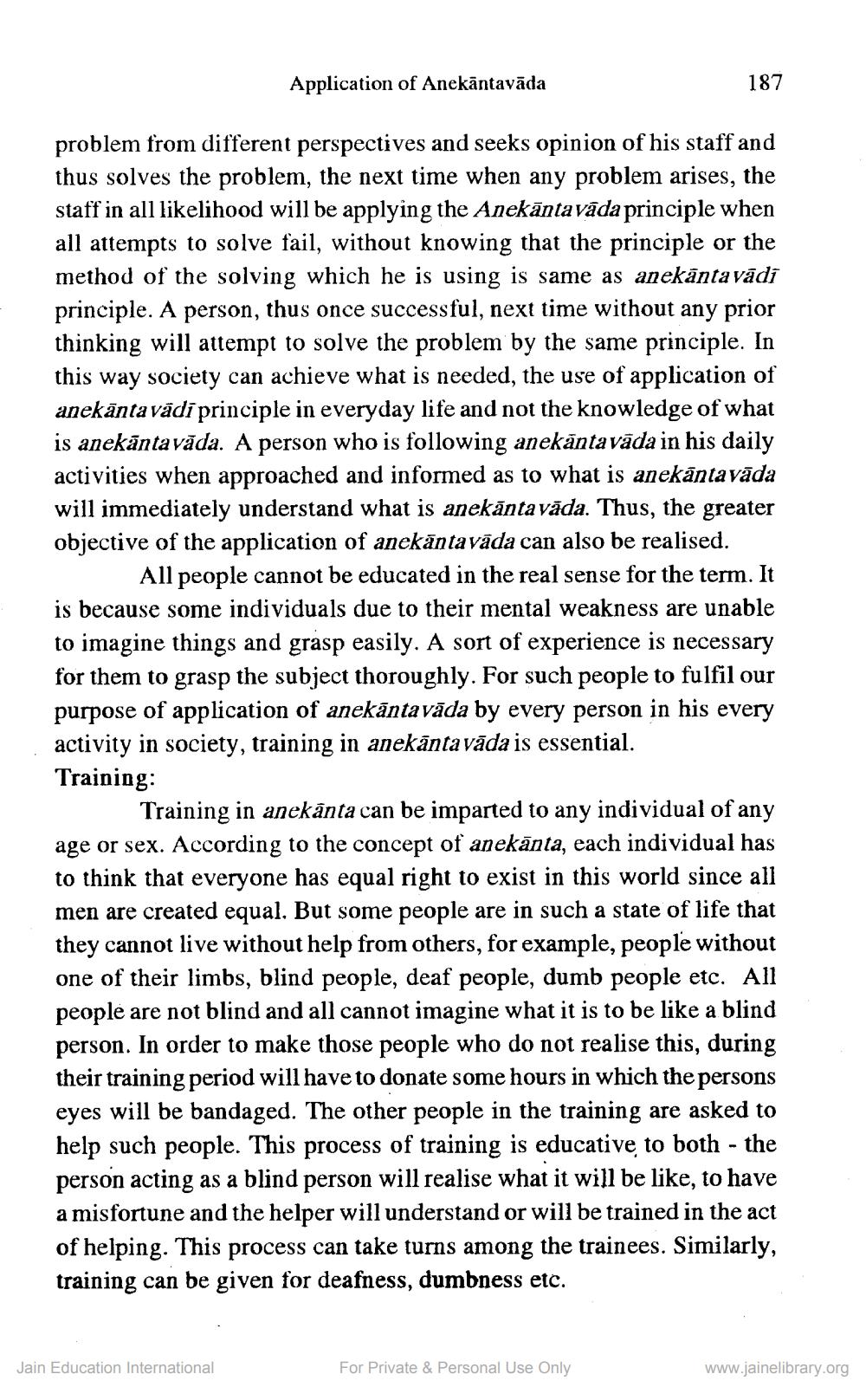________________
Application of Anekāntavāda
187
problem from different perspectives and seeks opinion of his staff and thus solves the problem, the next time when any problem arises, the staff in all likelihood will be applying the Anekāntavāda principle when all attempts to solve fail, without knowing that the principle or the method of the solving which he is using is same as anekāntavādi principle. A person, thus once successful, next time without any prior thinking will attempt to solve the problem by the same principle. In this way society can achieve what is needed, the use of application of anekāntavādi principle in everyday life and not the knowledge of what is anekāntavāda. A person who is following anekāntavāda in his daily activities when approached and informed as to what is anekāntavāda will immediately understand what is anekāntavāda. Thus, the greater objective of the application of anekāntavāda can also be realised.
All people cannot be educated in the real sense for the term. It is because some individuals due to their mental weakness are unable to imagine things and grasp easily. A sort of experience is necessary for them to grasp the subject thoroughly. For such people to fulfil our purpose of application of anekāntavāda by every person in his every activity in society, training in anekānta vāda is essential. Training:
Training in anekānta can be imparted to any individual of any age or sex. According to the concept of anekānta, each individual has to think that everyone has equal right to exist in this world since all men are created equal. But some people are in such a state of life that they cannot live without help from others, for example, people without one of their limbs, blind people, deaf people, dumb people etc. All people are not blind and all cannot imagine what it is to be like a blind person. In order to make those people who do not realise this, during their training period will have to donate some hours in which the persons eyes will be bandaged. The other people in the training are asked to help such people. This process of training is educative to both - the person acting as a blind person will realise what it will be like, to have a misfortune and the helper will understand or will be trained in the act of helping. This process can take turns among the trainees. Similarly, training can be given for deafness, dumbness etc.
Jain Education International
For Private & Personal Use Only
www.jainelibrary.org




